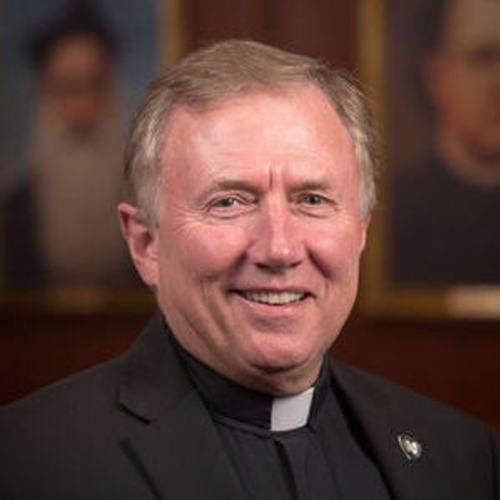Biblical Literary Forms
Next Session: Jun 15, 2020
Every written message is captured within a literary form presumably known to the reader. Not knowing the intended form of a message can lead to misunderstandings. If a message was written over 2,000 years ago, then knowing the intended literary form or genre is a challenge. This course is designed to acquaint course participants with some of the key literary forms found in the Bible. Participants will grow in their ability to read and understand the Bible through a study of these literary forms and by sharing reflections on the Sunday Scriptures
*Note: All participants must have their own copy of And God Said What? An Introduction to Biblical Literary Forms for Bible Lovers by Margaret Nutting Ralph (Paulist Press, 2003).
Course Content
Unit 1 - Introduction to Form Criticism: The Bible and the Gospels
Unit 2 - Literary Forms: Myth and Legend
Unit 3 - Literary Forms: Parables and Allegory
Unit 4 - Literary Forms: Song and Fiction
Unit 5 - Literary Forms: Letters and Revelation
Course Format
- Created by Notre Dame Theology Professor.
- Six weeks in duration, with one week for orientation.
- Typically 15-20 students in each course.
- Supplemental resources are provided to encourage further exploration of topic.
- Written assignments (150-200 words) required.
- Facilitator moderated chat sessions with students in course.
Required Texts
- All participants must have their own copy of And God Said What? An Introduction to Biblical Literary Forms for Bible Lovers by Margaret Nutting Ralph (Paulist Press, 2003).
- All other course material available online in the course.
Participation Requirements
- Read assigned texts; keep notes, questions, and comments for class discussion.
- Participate in the class discussion using the Forums area: post at least 2 comments, questions, or responses per unit.
- Write 150-200 words in response to the assignment in each unit.
- Participate in at least 3 scheduled chat sessions throughout the course.
- Complete the course evaluation.
Time Expectations
4 to 6 hours per week, depending on your learning style and schedule.
Course Certificate
A certificate of completion awarding 25 contact hours will be sent upon completion of all course requirements.

Rev. Michael Driscoll
Rev. Driscoll's scholarly interests are in the area of liturgy and sacramental theology. He has published a monograph and numerous articles in journals such as Worship, Ecclesia Orans and Traditio. His major interests are medieval liturgy and sacramental theology, most notably in the Carolingian period. For the past several years he has collaborated on the Byzantine St. Stephen's Monastery Project in Jerusalem, Israel. He has served as convener of the study groups in Medieval Liturgy for the North American Academy of Liturgy, and in January 2001 was elected Vice-President (2001) and President-Elect (2002). In August 2001 he was elected to the Council of the Societas Liturgica, an international and ecumenical society of liturgists. He has also served the Bishops' Committee on the Liturgy, a standing committee of the United States Conference of Catholic Bishops, as a liturgical advisor.
B.A., Carroll College (Helena, MT), 1969; S.T.B., Gregorian University (Rome), 1977; S.T.L., Saint Anselmo (Rome), 1980; S.T.D., Institut Catholique (Paris), 1986; Ph.D., University of Paris Sorbonne, 1986